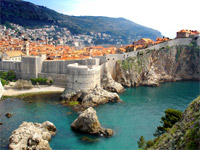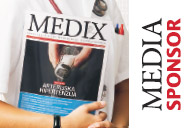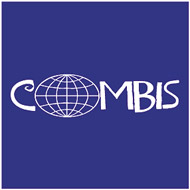Useful Informations
SHORT FACTS ABOUT CROATIA

- Official name: Republic of Croatia
- Official language: Croatian
- Alphabet: Latin
- Currency: Kuna (100 lipa)
- Population (last census): 4.784.265
- Number of islands: 1,185 66 (inhabited)
- Capital city: Zagreb (nearly 1 million inhabitants)
- Total state area: 89,810 km2 (55,6822 sq.mi)
BASIC DATA ABOUT DUBROVNIK

Dubrovnik is a city with a unique political and cultural history (Dubrovnik Republic, Dubrovnik Statute from 1272), and world famous monumental heritage and beauty (inscribed on the UNESCO World Heritage List).
It is attractive any time of the year, for it is a city of hotels, beautiful landscapes, and an enviable ecological standard - geared to tourism.
CLIMATE - DUBROVNIK REGION
The climate along Dubrovnik Region is a typical Mediterranean one, with mild, rainy winters and hot and dry summers. The air temperatures can slightly vary, depending on the area or region. Summer temperatures in July rise till 34C in the northern part, while in the southern part they usually rise to 38C. During winter the coldest temperatures are recorded in the northern Adriatic with temperatures dropping sometimes below zero, while the southern regions of the Adriatic coast generally remain above zero.
- Air temperature
-
average annual 16,4 C (61,5 F)
average of coldest period (January) 9 C (48,2 F)
average of warmest period (August) 24,9 C (76,8 F) - Sea temperature
- average May - September 17,9 - 23,8 C (64,2 - 74,8 F)
- Salinity
- approximately 38 %
- Precipitation
-
average annual 1020,8 mm
average annual rain days 109,2 - Sun
-
average annual 2629 l
average daily hours: 7,2 h
TIME
Standard time zone: UTC/GMT + 1 hour
CURRENCY, MONEY AND BANKS

Croatia's unit of currency is the Kuna (Kn.), which is divided into 100 lipa. Coins come in denominations of 1, 5, 10, 20 and 50 lipa, and 1, 2, and 5 Kuna. There are notes of 5, 10, 20, 50, 100, 500 and 1000 kuna.
You can pay in Kuna at any place or for any service or product you use. In some places you can pay in Euro or dollars. Be sure to establish the method of payment in advance if you wish to pay in any other currency than Kuna.
Banks (banka) are generally open Monday to Friday 7.30 AM-7 PM and Saturday 7.30-11.30 AM. Money can also be changed in post offices, travel agencies and exchange bureaux (mjenjacnica), which have more flexible hours.
The Kuna is approximately 1 EUR = 7,2 KN. Currency converter
CREDIT CARDS
All major credit cards, such as American Express, Eurocard/Mastercard, VISA, Diners, etc are accepted in most hotels, restaurants and shops. Cash can be accessed at ATMs in almost all towns, cities and tourist centres; almost all ATMs accept major credit cards. Many banks have ATMs in front of their building.
VISA
Citizens from Australasia, EU, North and South America are allowed into Croatia without a visa. Everybody else needs a visa which must be obtained before entering the republic - you cannot obtain a visa at any Croatian land border. With questions concerning visas please contact the PCO or visit the website
For confirmation letters please contact anja@conventuscredo.hr
TRAVEL DOCUMENTATION
Passport or some other internationally recognised identification document. Tourists may remain in Croatia for up to three months.
For more information:Diplomatic consulates of the Republic of Croatia abroad or the Ministry of Foreign Affairs of the Republic of Croatia. Tel. +385 1 4569 964
SAFETY
It's quite safe to travel all over Croatia. You can safely walk in any town at night, but use your common sense, as always.
ELECTRICITY
Voltage: 220 V, 50Hz. Sockets take 2 square-pin plugs. Appliances designed to operate on 110/120 V need a voltage converter and plug adapter.
WATER
Tap water is potable throughout Croatia.
RESTAURANTS
There is a great choice of restaurants offering national and international dishes.
USEFUL PHONE NUMBERS
- Country code is 385
- Dubrovnik area code is (0)20
- Emergency number: 112
- Police: 92
- Fire department: 93
- Ambulance: 94

